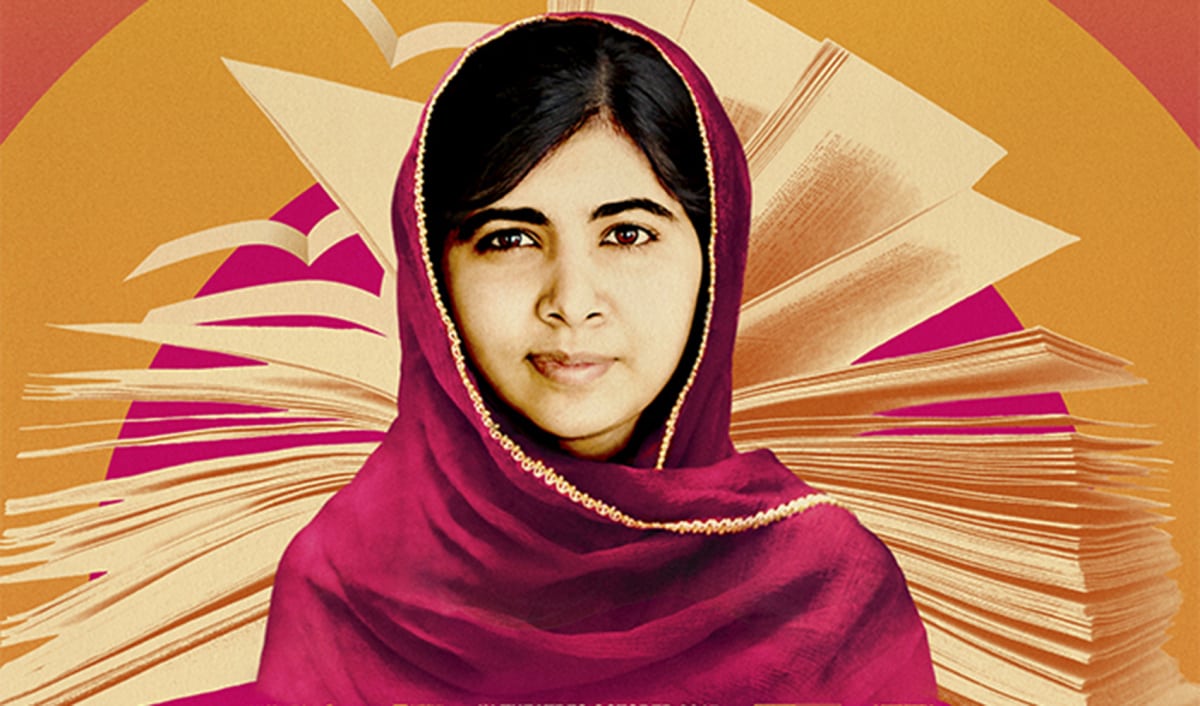Malala Yousafzai

Illustration of Malala Yousafzai standing at the UN podium with the Malala Fund banner and a globe behind her.
Biography
Malala Yousafzai was born on July 12, 1997, in Mingora, a city nestled in Pakistan’s Swat Valley. Her father, Ziauddin Yousafzai, a teacher and education activist, raised her to believe in the power of knowledge—radical in a culture where girls were often told to shrink themselves. By age ten, Malala was already a lover of learning and a familiar face in her father’s classrooms. But that year, her world shifted dramatically.
The Taliban seized control of Swat Valley in 2007. They banned girls from attending school, burned hundreds of classrooms, and ruled with violent force. Malala, just a child, refused to disappear quietly. She began blogging anonymously for BBC Urdu under the pen name 'Gul Makai,' detailing her fear, her hopes, and her belief that girls deserved an education. Her words—written in secret—traveled the world. By age 11, Malala was not just a student; she was a symbol of defiance.
As her voice grew louder, so did the risks. On October 9, 2012, Taliban gunmen boarded her school bus and asked, 'Who is Malala?' They shot her in the head. She was 15 years old. Miraculously, she survived. After emergency surgeries and months of recovery in the UK, Malala made a choice: to keep fighting. Not for revenge, but for justice.
On her 16th birthday, Malala delivered a powerful speech at the United Nations, declaring: 'One child, one teacher, one book, and one pen can change the world.' The UN declared it Malala Day. That same year, she published her memoir, 'I Am Malala,' and co-founded the Malala Fund with her father to champion girls’ education globally.
In 2014, she became the youngest Nobel Peace Prize laureate at just 17. But she didn’t stop there. Malala traveled to refugee camps, war zones, and underserved communities, amplifying the stories of girls silenced by violence and inequality. She met with leaders and students alike—from Nigeria to Brazil, Iraq to Kenya. She continued her own studies, graduating from Oxford University in 2020.
Today, Malala Yousafzai remains a fearless advocate, writer, and changemaker. Through the Malala Fund, she supports education programs in countries like Afghanistan, Nigeria, and Pakistan. She produces films, writes stories, and builds movements. Her fight is far from over—but it’s no longer just hers. It’s global. It’s growing. And it’s being carried forward by a new generation of girls with voices too strong to silence.
Malala Yousafzai did more than survive an attack, she turned her pain into power. She challenged extremist ideologies with a pen, not a weapon. Her advocacy forced the world to confront a harsh truth: millions of girls are still denied basic education because of where they live, how much money they have, or what others think they’re worth. Her life is a call to action for anyone who’s ever been told 'you can’t.' She proved that a clear, unwavering voice can break through. And now, through the Malala Fund and her global presence, she’s giving that microphone to girls everywhere.
?
Why did Malala choose education as her cause?
How can media and storytelling be used to create social change?
What does Malala’s journey teach us about resilience and advocacy?
In what ways can students today get involved in promoting education rights globally?
How did Malala’s identity as a young girl affect how people responded to her activism—both positively and negatively?
Dig Deeper
This short biography highlights Malala’s life, her recovery, and her growing role as a global advocate for girls' education.
In this heartfelt and funny interview with Jon Stewart, Malala speaks about her philosophy of peace, her near-death experience, and the global fight for education.
Discover more

Wangari Maathai
Wangari Maathai founded the Green Belt Movement, planted over 40 million trees in Kenya, and became the first African woman to receive the Nobel Peace Prize.

Jean-Jacques Rousseau
Jean-Jacques Rousseau reimagined modern freedom, education, and democracy through his social contract theory and philosophy of natural human goodness.

Jane Addams
Jane Addams was a pioneering social reformer and peace activist who believed communities grow stronger when people care for one another.
Further Reading
Stay curious!
